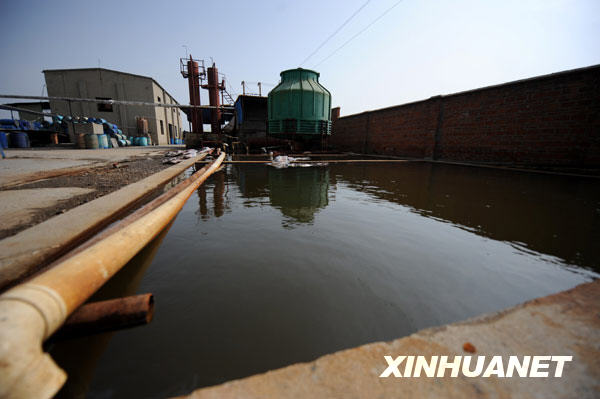Scared residents were still going to extraordinary lengths to find safe drinking water at the weekend despite assurances from local authorities that the quality of the tap water had been restored following a toxic chemical spill.
Although the water was declared "safe to drink" at 11 am on Saturday, many of the 200,000 people affected when taps in the costal city ran dry for 25 hours on Friday were staying cautious.
Wu Qiang, who lives in a downtown residential community, said he was still too terrified to drink the tap water. "It has no strange smells any more and the government said it is up to standard, but I'm still drinking bottled water and only use tap water for washing," he said.
There were also many who still did not have a supply as the city had been relying on a single water plant after two others were shut down due to contamination.
"There is no water in my apartment on the third floor," said a woman surnamed Zheng. "The government said it was due to insufficient water pressure and asked us to be patient. So I have to think of other ways to find water."
She finally did, leading her to a nearby factory where she was able to draw from a 900-m-deep well. She was joined by scores of others who waited from morning to night with buckets, basins and kettles. Some even went with shoulder poles and cars.
Zhou Jinming, a farmer who lives near Biaoxin Chemical Company, which was revealed by the local government as the major culprit for the water cuts due to carbolic acid it had discharged, described how much pollution it had brought to his village.
The 60-year-old has lived in Longgang township in western Yancheng since childhood and his village, he recalled, used to be "beautiful and green". But that had changed when the factory opened eight years ago, he said.
"Everyone here knows how much pollution it has brought," said Zhou as he pointed at a river behind the factory. "It used to be quite clean, teeming with fish and river snails. Now, nothing can be found here."
Although the company has been ordered to close, many feel there is more to be done, with scores of similar firms in the region.
 |
|
Photo taken on February 21, 2009 shows the Biaoxin Chemical Company, which has caused a massive tap water pollution in Yancheng, east Jiangsu province.
|
Qin Boqiang, a researcher at the Nanjing Institute of Geography and Limnology under the Chinese Academy of Sciences, said it is not reasonable for the city to have high-polluting chemical plants on the upper reaches of its water source.
"They are like time bombs, ready to pollute the city's drinking water. The local government should relocate these firms as soon as possible," he said.
According to Xu Shoukai, director of the environment inspection team under Yancheng's municipal environmental protection bureau, local authorities have already been working on a plan to either shut down polluting chemical plants or move them into industrial parks where there are standardized waste water treatment facilities.
Latest figures from the bureau show water quality at the two polluted water plants has improved steadily.
So far, no one in the city has reported any symptom of poisoning.